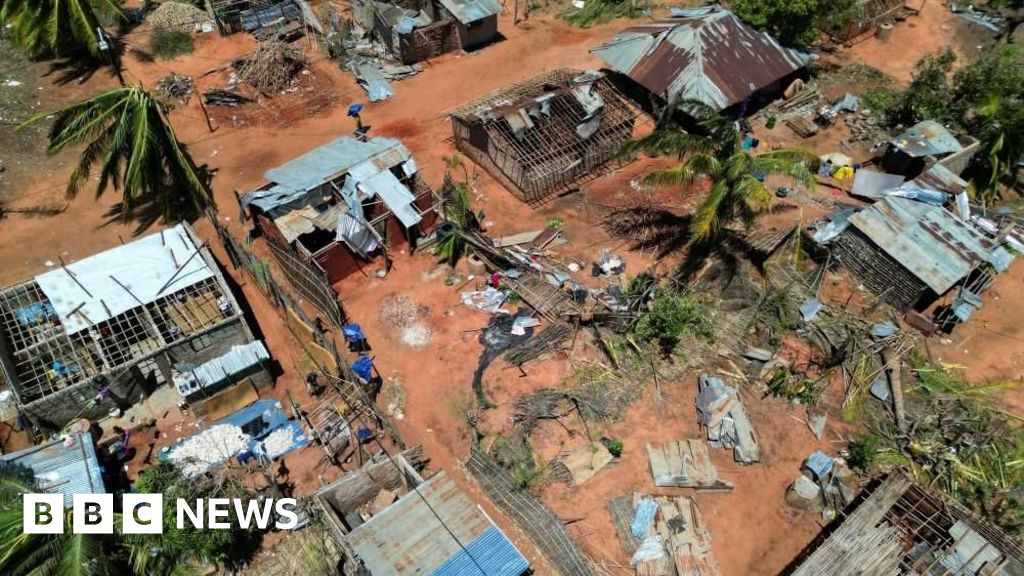For days, the people of Paiporta have been dealing with the devastation of their town. But what hurts them now is the sense that they have been forgotten by their country.
As we walk through this town, what we see is relentless hard work - clearing mud, pumping out water, recovering cars.
But none of it is being done by people in uniform. Paiporta is being saved by its own residents, by friends, and by volunteers.
"The town feels like chaos," says Cristina Hernandez, who moved here a year ago from Madrid
"Nobody has organised anything so we are doing our best. We feel we are abandoned by the government and there are also a lot of thieves in the night, so we are scared.
"It is a nightmare not only because of the floods but also because of the anarchy that we are living through now. After the catastrophe, the worst thing is that we are still scared.
Spain floods latest: King Charles 'utterly heartbroken'
"We don't have food or clothes. Some of our friends are still missing and some have lost their houses with all their things in them.
"So it is pretty sad that we see trucks going past but nobody is helping with the mud and clearing the houses, so we are alone."
As if on cue, we can see a helicopter flying above us, but it passes by. She shakes her head.

"We see them, but we don't know what they are doing," she says. It is, at the moment, a cruel sight - a tantalising vision of help that comes and goes.
Around us is a tapestry of devastation - dozens and dozens of wrecked cars, many of them lying in a lake of stagnant water. Cloying mud covers piles of debris. On the road, there is a child's booster seat, a shoe and a small purse. Tangled wires lie like a web.

Along the road, every house is affected, splattered with mud. You can see the dark waterline where the water reached its highest point.
Ruth is sweeping water along the street, time after time, pushing it towards an open manhole cover. She rests for a second, then starts again.
She takes a break and tells me that she has not seen a policeman, a soldier, a doctor or any other official. "It's only us who clean up," she says. "Where are they?"
Read more:
Spain reels from deadly flash floods
The 'utterly random damage' in town where 40 died
Floods hit 'like a tsunami' - eyewitness
Please use Chrome browser for a more accessible video player
I start to ask her if she is angry with the government, and she interrupts. Her fury is palpable. "Angry? I am so, so angry with the government.
"I don't care which political party you support, because my flag is Spain. And this is so bad."
She wanders off, then returns and gently grabs my arm. "Come this way," she says. "The world should see this."
We round a corner and come to a street that is entirely packed with a wall of cars, mixed with huge piles of debris.
A fridge freezer, a microwave. Ruth clambers on top of a shattered bonnet and pulls me alongside her. "Nobody can reach these houses; nobody has looked in these cars," she says. "They have forgotten."

It's not true to say that no officials have come to Paiporta. We see local police, civil guard, ambulances and firefighters. As we're leaving, we even see a military truck pull up.
But nobody seems to be coordinating any of this. At one point, I saw a policeman try to take control of a vehicle recovery, but nobody listened to him. He had a short row with his colleague, and then they both drove off.
As for the military, I had a chat with one of the officers as they stood by the road, waiting for a lorry to move so they could drive in.
The soldier was evidently frustrated. "We want to help, we know we can help, but so far we don't have the orders about what we have to do," he said.
"So you need a chief - someone to take control?" I asked. A question answered with a deep, long nod.
Paiporta has suffered grievously in these floods. At least 60 people are dead, a figure that shocked Cristina when I told her. They have no access to the internet, of course, and cannot leave their town. "There will be more," was her response.
But what makes that pain so much worse is the time it is taking to be helped. Last year, I went with my colleagues to an appalling earthquake in Morocco, and within two days there were well-equipped Spanish response teams helping out, saving lives and leading the response.
And yet now, in their own country, the response is sluggish and indecisive.
A French offer to send in help was turned down. We are told that huge numbers of troops are being mobilised but we have seen hardly any and the ones we've met don't know what they're supposed to do.
These towns are desperate for leadership, reassurance, help and certainty. Instead, right now, they are fending for themselves.

 1 month ago
8
1 month ago
8











 English (US) ·
English (US) ·